There is something so curiously captivating about the island of Bali, Indonesia. When I flew from Sydney to the Denpasar airport in Bali, I expected to step off of the plane and into the raw, lush paradise that everyone had described to me. As I was quick to find out, that wasn’t the case at all.
As part of a developing nation, Bali’s undertone of old-world life is peppered with the new-world wealth of a booming tourist industry. I had just finished scoffing at the Starbucks outside of the airport when our cab driver loaded us into the car. Wasn’t this supposed to be paradise? The American Icon seemed strategically placed as a sort of pacifier for the privileged tourist who, after surviving customs without proper AC or bottled water, might have already exhausted their patience for life without luxury. On the drive to our hotel in Sanur, it was easy to see that there are just enough safe-harbors of Western amenities that the average tourist could spend weeks there without ever feeling too far out of their element.
We pulled up to our hotel, made our way through the security checks and I promptly bit my judgmental tongue.
This was way worse (and by that I mean shamefully better) than Starbucks.
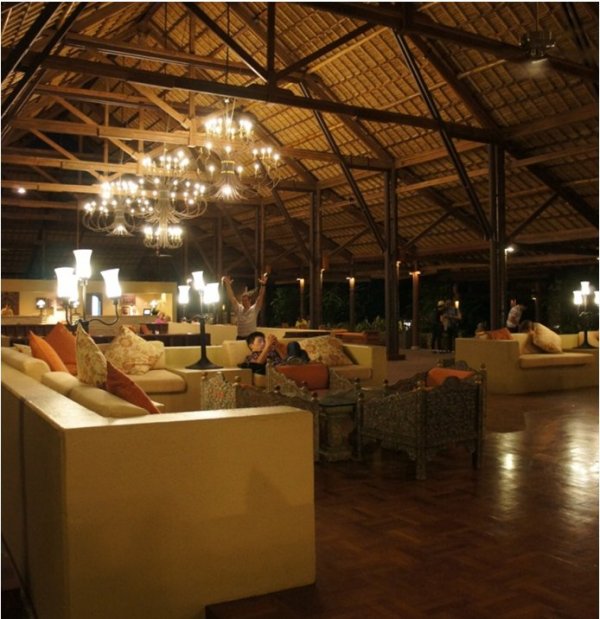 The outdoor lobby of our hotel in Sanur
The outdoor lobby of our hotel in Sanur
We had driven for almost an hour through dirty streets lined with dilapidated buildings, shoeless children and stray dogs. And yet, it took all of five seconds to forget that there was a world beyond the gates of our beautiful, lushly landscaped five-star beach resort.
The dream continued all the way to our fully-stocked beach view rooms.
That evening we befriended a waiter of ours who offered his brother up as our personal tour-guide for a day. He took us through different villages around the island – each with their own craft such as wood working, silver making, etc. We drove by endless rows of rice paddies and street vendors and at one point, a crowd of gamblers cheering on a cock fight. We watched as groups of men waited road-side for trucks to elect them for a job. We were starting to discover what Bali was really like outside of our hotel haven. By late afternoon the heat and traveling had taken its toll on us. Our driver had the perfect idea. We drove up to a coffee plantation in the Monkey Forest region where they produce Luwak Coffee. Luwak Coffee is considered to be the best in the world and is among the most expensive. Why? The beans that are used to make the coffee are carefully picked out, consumed and subsequently secreted by a cat-like animal called the Kopi Luwak. These beans are then hand-roasted to make the coffee. Unpleasant origins aside, we had to have a cup. It was delicious. “When in Bali,” right?
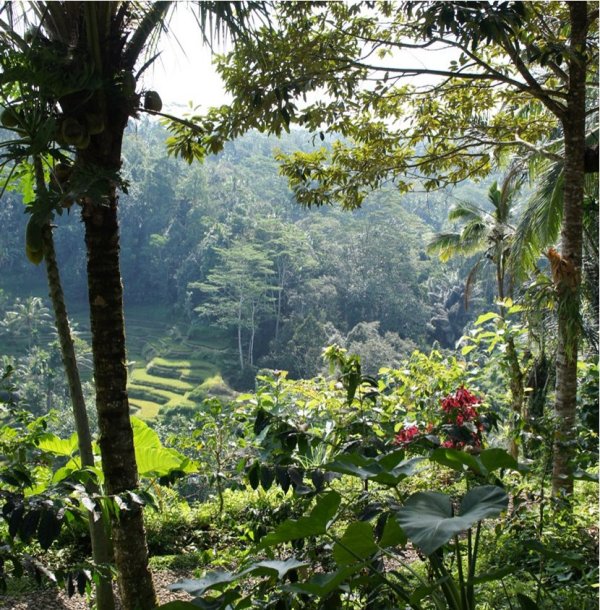 The lush landscape of Bali
The lush landscape of Bali
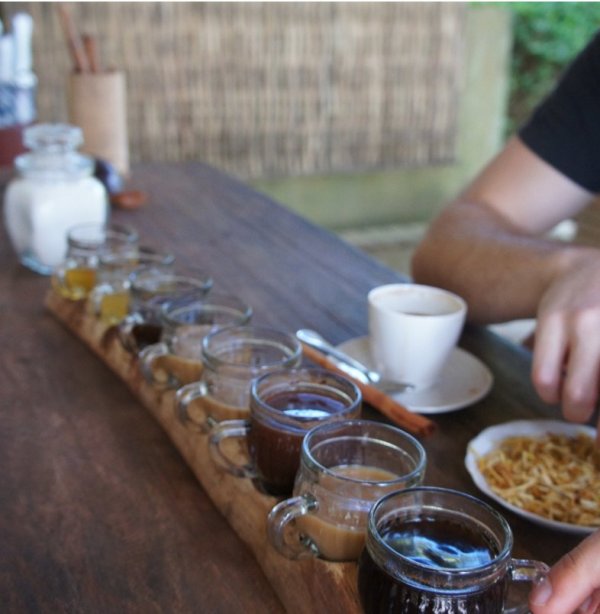 A sampling of Balinese coffees and teas
A sampling of Balinese coffees and teas
We made our way to the famed Kuta beach and fought the crowds in the Ubud markets. But each day we were happy to return our weary bodies to the sanctity of our hotel. We’d recoup in the pool and inevitably make our way down the beach or the street front to find a restaurant for dinner. Expats are plentiful in Bali which meant we had an incredibly diverse selection in international cuisine. We tried it all. Most of the restaurants are typically open-air without any walls or gates. Though they have indoor kitchens, many of them grilled food at the front of the restaurant to lure in passersby. Nothing beats a delicious meal under the stars with live music permeating the ocean breeze. And to top it off, the average three course meal including dessert and drinks usually ran you about Rp 100,000 (or USD $10!)
 Driving through the streets of Ubud
Driving through the streets of Ubud
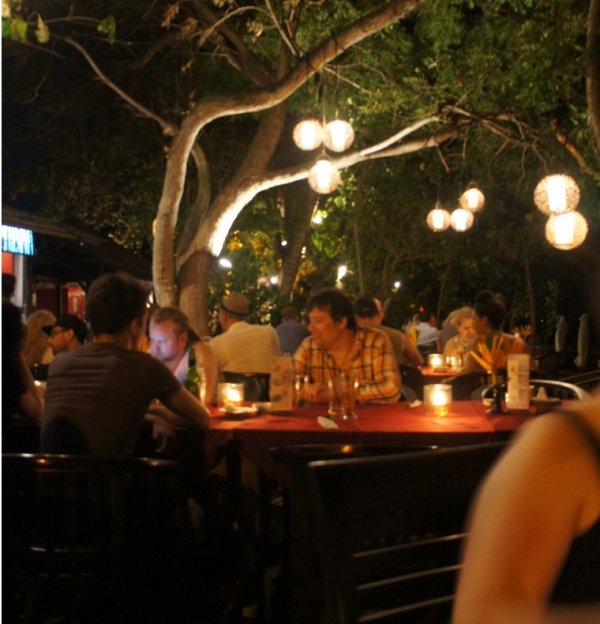 An expat restaurant on the beach in Sanur
An expat restaurant on the beach in Sanur
Before we knew it, our trip had come to an end. We spent our departure day at the pool and finally made our way back through Bali’s chaotic traffic to the even more chaotic airport to catch our red-eye. Security is no joke in Bali and after successfully passing through no less than three security check points we finally found a seat at our gate. We arrived in Sydney around 6am and in our Bali daze made it through the cold and rain and back to the apartment. We made it there by 8am and went straight to bed.
I woke up several hours later to find that it was still raining outside. It was weird to think that two places, seemingly worlds apart, could be traversed in just a six hour flight. The cab driver that took us to and from the markets in Ubud put things in perspective perfectly. His modest wage afforded him a single room dwelling where he shared a bed with his wife and two children. Rising rice prices made it increasingly difficult for him to put food on the table. Despite what he was saying, he remained jovial. Like most of the Balinese people we encountered, he was nothing but polite and gracious. We may have been the ones who put the unsightly Starbucks at his airport but we were also the ones that paid him a cab fare. On the one hand we were pock-marking his land with uncultured Western businesses. We were coming in by the thousands, talking to them in English and lazily lapping up the luxury of our American hotels. But on the other hand, we brought them opportunities they hadn’t had before. I suppose that is the plight of any developing nation that relies on tourism. The good always comes with the bad. I believe in hard work over luck but this was the moment when I truly felt lucky. I was born into a world of endless opportunity where I didn’t have to know the difference between old world culture and new world progress. I only ever had one. But I suppose that is our responsibility as travelers. To attempt to learn, understand and respect the intrinsic value of both.


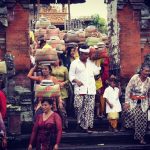




Leave a Reply